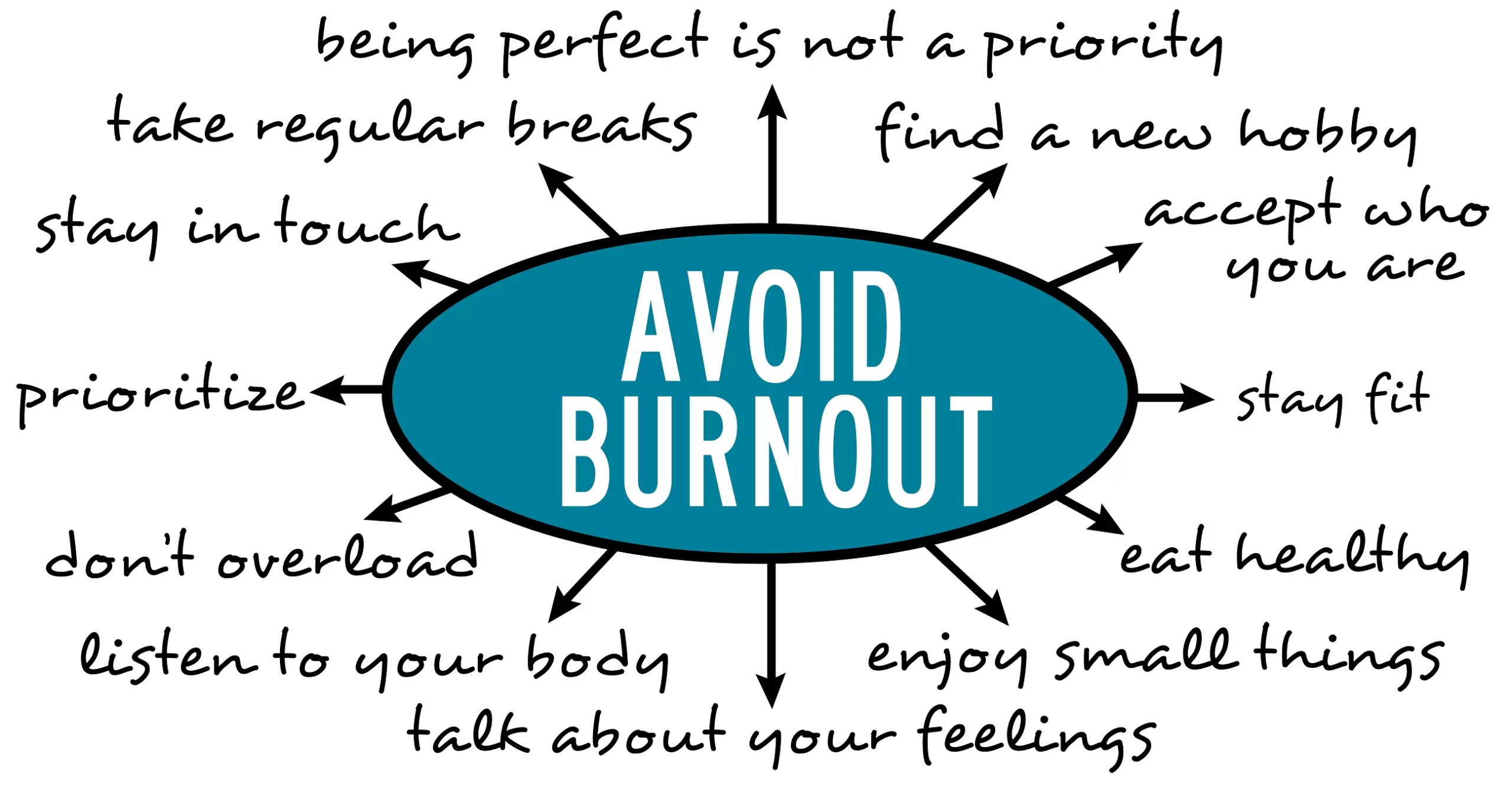Perfectionism: 10 Strategies for Surviving It and Preventing Stress

Do you feel like your efforts fall short even when you give them your best shot? That is the perfectionism trap. You need to know where to start if you frequently burn out due to your irrational expectations.
The Origin of Perfectionism
Refusal to accept anything less than perfection (flaws or defects) is known as perfectionism. It’s not by coincidence that you set such high demands for yourself.
The circumstances in your life have shaped your thoughts, feelings, and actions. If you want to start mending and altering how you view your life and career, find out where they originated.
Parental expectations cause people to become perfectionists. On occasion, parents demand perfection from their kids. Sometimes, perfectionism is exhibited, and the youngster imitates their parent or another adult role model.
In other cases, it serves as a type of restitution that gives you power over a situation that makes you feel powerless.
What’s Wrong with Being Perfect, Anyway?
When you need perfection, you put more emphasis on the outside world than the inside. No matter how worn out you are, you tell yourself you can’t relax until the task is finished or perfected, so you force yourself to keep going. You can feel guilty if you believe others hold you to the same standard of excellence, and you don’t want to let them down.
You might also want to show how wrong people are when they think you can’t do something by showing that you can.
Fundamentally, perfectionism frequently results from believing you are flawed or imperfect. To reclaim your sense of value, you focus on perfecting your work—a.k.a. something you can control. The problem is that there is a valid explanation for why it doesn’t work.
You cannot fix your relationship with yourself through the actions you take. Your beliefs will not change because you received good grades or were promoted at work. Your script won’t change simply by doing something. Nothing you do will make you feel better if you dislike certain aspects of yourself or think you are worthless.
The only thing that perfectionism achieves is to keep you mired in a never-ending cycle of striving, achievement, and the belief that no matter what you’ve done, it’s still insufficient.
You’ll keep pushing yourself so hard that you’ll lose your balance. Your relationships and health will suffer. Instead of letting your accomplishments satisfy your need for affirmation, you’ll try to justify them. And when failure shows up, you’ll be devastated and incredibly embarrassed.
Ironically, you developed perfectionism to prevent failure. But having such high standards for yourself puts you at a higher risk of failing. Additionally, the more failures you experience, the worse you feel, the more you criticise yourself, and the more you believe you need extra effort to make up for it.
Why do perfectionists get so stressed?
Perfectionism’s underlying emotion is motivated by fear, just like any other behaviour. People may mistakenly believe that the fundamental fear of perfectionism is a fear of failure, but the fear is deeper than that.
The truth is that many who work hard to be the best in their profession are afraid of receiving negative feedback from others. This is important to know because it shows that you are trying to fill an unmet need by putting too much importance on how many or how well you do your chores. In either case, you are trying your hardest to feel a connection to others around you, but perfectionism makes you anxious and distances you from them.
Think about how you would feel if you were in the presence of someone flawless. Would you want to be honest with them about your struggles? Most likely not. This is brought on by our need to connect with others. We must be able to identify with them. If they are elevated, they are beyond our reach. Perfectionists frequently express their loneliness.
Above all else, acceptance from other people is what they desire. They think that by doing an excellent job, they will win the desired approval, but even then, it will only last briefly. As they go to their next task, the worry of being evaluated still hangs over them, and they might need more time to internalise their success because a more imminent failure is ahead. It is exhausting to live this way.

10 Ways to Get Rid of Your Perfectionism
It’s more complicated than it sounds to flip perfectionism on its head. It would be beneficial if you changed your relationship with yourself in order to change this deeply ingrained behavior, as well as the fear of being evaluated and the conviction that you are insufficient.
Here are 10 strategies for overcoming perfectionism:
- Brene Brown discusses the value of having the courage to be your flawed self in her book, “The Gifts of Imperfection.” It’s more important to show up authentically, flaws and all, than to seek external approval.
- Even though you might be afraid of making a mistake, you can challenge your beliefs by overcoming your fear and making a mistake. What do you anticipate happening? Check to see whether your forecast comes true in the manner you expected. If not, it means your mind is fabricating unnecessary drama. Learn to let go of control to achieve perfection and observe the terrible things that result. You’ll pull through and realise things aren’t as awful as you thought.
- Ask yourself what feels out of control. Focus there rather than concentrating externally on having a sense of control. Consider speaking with a therapist to help you connect with the aspects of yourself that are out of reach. You may become more conscious of blind spots you were unaware you had.
- Consider the distinction between chores you need to do and tasks you want to complete if your perfectionism involves taking on too much and being overwhelmed. Think about what you’ve already committed to doing and whether you can commit to more before taking on a new activity.
- Get rid of all constraints on your self-esteem. Remember that doing something doesn’t make you a good person, so refrain from guilt-tripping yourself into doing more by telling yourself, “If I were a decent mom/friend/spouse/worker, I would take this on.” People don’t like you just because you make them happy. Recognise that you have limited resources. Thus, it would help if you learned to say “no” to some things and “yes” to others.
- What needs are currently not getting met? As was previously mentioned, perfectionists frequently desire connection but believe they must concentrate on doing because they are insufficient or too imperfect. Instead, look for methods to emotionally satisfy yourself. Be kind to yourself when you are going through a challenge, when you fail or make a mistake, or when you don’t live up to expectations. Treating yourself with the same compassion as a hesitant friend would be best.
- Develop a more adaptable mindset. Perfectionists frequently have a black-and-white perspective. This all-or-nothing way of thinking is not only ridiculous, but it also excludes several possibilities that are more humane and practical. Locate the grey area.
- Because you must rely on people to complete the job to your standards, you might be inclined to cling to as much of it as possible. In actuality, you cannot accomplish everything by yourself, and if you try, all you end up doing is worrying about yourself. Even if something still needs to be completed to your expectations, it is still preferable to have it done than not. Learn to delegate responsibility and relinquish control. You’ll feel lighter and have more breathing room.
- You are less prone to take chances if you are a perfectionist. You might look for reasons you should only tackle a task you’ve previously failed at if you’re convinced you can succeed. Focus on changing to a growth mentality to overcome this fear of failing. Keep in mind that your greatest teacher is failure. You can adjust your methods and, ironically, grow closer to perfection through those lessons by learning what works and what doesn’t.
- Sometimes, perfectionists are so determined to finish a task that they refuse to let up, even when their strategy fails. Instead of slamming your head against the wall, consider what isn’t working, how to address the problem, and think of a different way to complete the task.
The hardest part of overcoming perfectionism is learning to control your inner critic, develop self-compassion, face your fears, and separate your value from what you do. It takes mindfulness to modify your perspective, challenge your beliefs, and become aware of the habitual thoughts that set off your fears and behaviours.
When you bravely turn up, you permit yourself to be human. You can take chances and accomplish goals without achieving perfection.
You can assign jobs to others and let them assist you. Failures can serve as learning experiences. Making decisions becomes simpler. Less time is wasted thinking about potential disasters. The best part, though, is how you’ll feel about yourself after accepting your limitations without guilt or shame.
If you are stressed, speak with a therapist. Call 90008 50001 or click www.hopetrustindia.com for an online or in-person appointment with a professional.